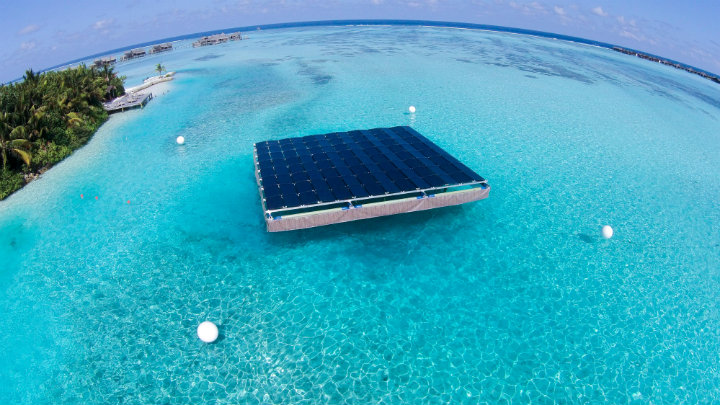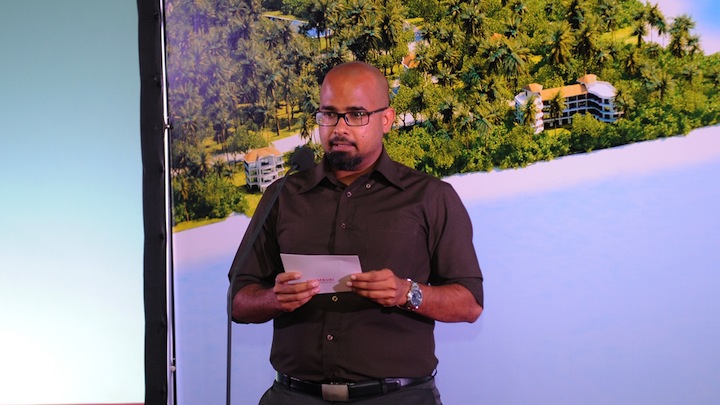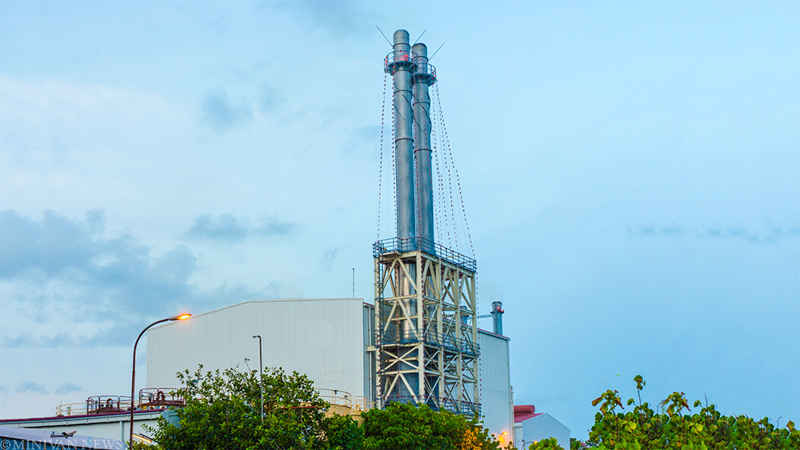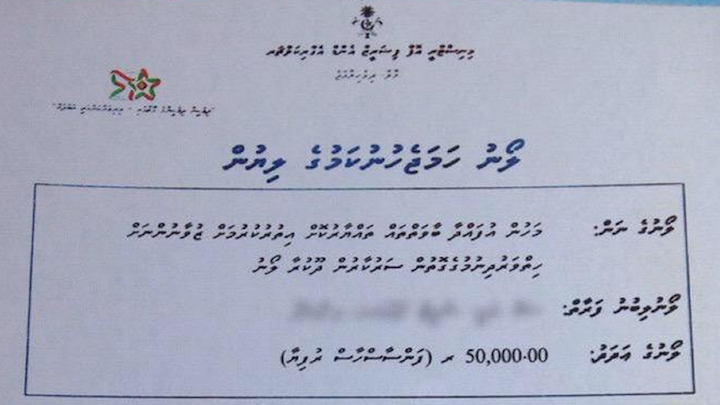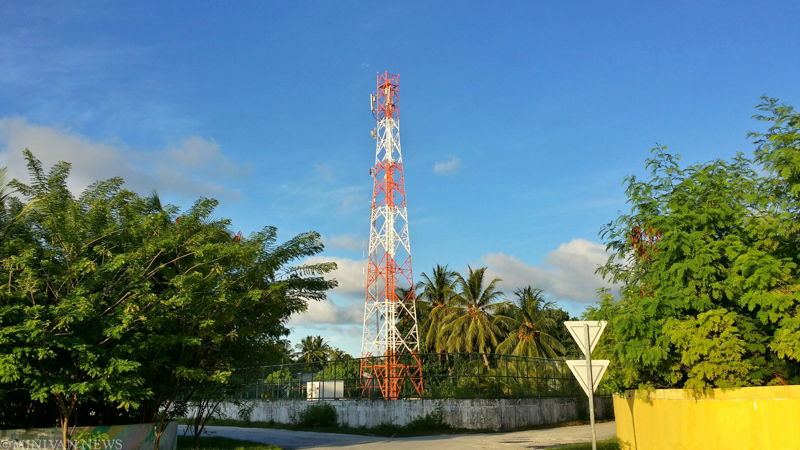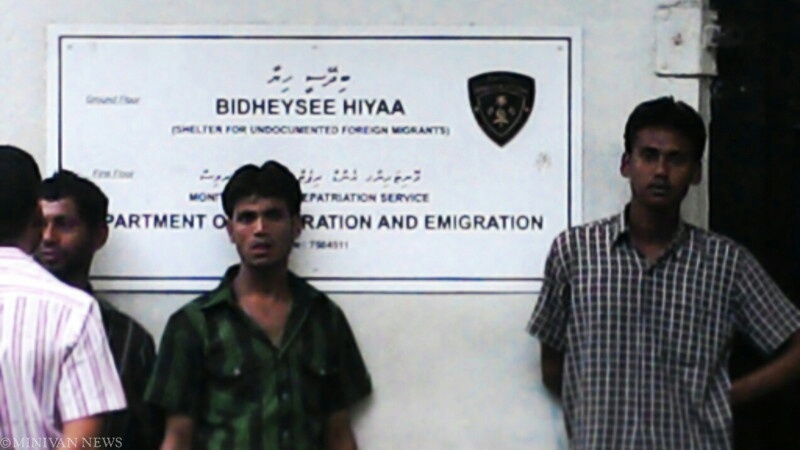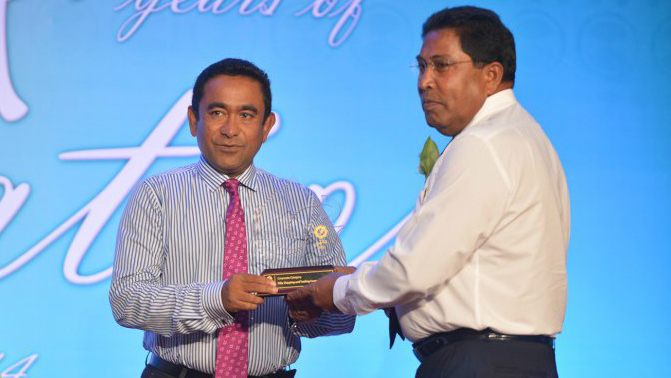An audit of the immigration department has identified deficiencies in the issuance of quotas and work permits as well as monitoring and enforcement measures.
The performance audit examined the “control of expatriate workers” in the Maldives after November 2012 and found that 68 percent of sampled quotas were issued against specified criteria.
The quota limits the number of expatriates that can be employed by a local business and is calculated based on the type of work. It is generated using an automatic formula in the ‘Xpat online system.’
“We observed the number of quota generated by the system through the use of the formula was more than were requested by the employers,” reads the audit report made public on Monday.
“Hence, the use of the formula resulted in issuing more quotas than was required. Such instances indicate that the [immigration department] did not consider the economic needs when quotas were issued.”
The audit also found that the department had not inspected all worksites before issuing quotas.
“This resulted in incorrect issuing of quotas; a police investigation report revealed issuance of quotas in respect of nineteen worksites that did not exist,” the report stated.
Of a sample of 40 quotas and employment approvals, 27 quotas and 13 approvals were issued when criteria were not met.
According to the 2014 census, there are 58,683 expatriates residing in the Maldives. However, the department of national planning has said the figure was much lower than numbers recorded by the immigration department.
NGO Transparency Maldives (TM) estimates there are 200,000 migrant workers in the Maldives – two-thirds of the country’s population.
A government report in 2011 revealed human trafficking to be the Maldives’ second most lucrative industry after tourism – worth an estimated US$123 million a year.
The Maldives ratified an Anti-Trafficking Act in December 2013, but TM says implementation, monitoring and enforcement of laws and regulations are crucial to prevent human trafficking.
Monitoring and enforcement
The department has not conducted research to determine the number of skilled and unskilled immigrant workers needed in the Maldives, the report observed, while the absence of a “sound policy framework” has resulted in a rapid increase in migrant workers.
Tackling illegal migration has since become “one of the main objectives of the department.”
The report noted that the absence of effective enforcement measures prior to 2014, after which the department “started conducting frequent investigations and they have strengthened their enforcement measures such as levying a fine on employers violating the regulations.”
“However, the [department] made slow progress in areas such as improving efficiency, staff capability quality of data and maintenance of complete data on the Xpat Online System,” it added.
The department began using the system in November 2012, but accurate information prior to then is not available as “migration of data from the labour ministry system…was not performed in a planned and systematic manner.”
“However, between 26 November 2012 and 31 December 2013 there were 9,914 expired work permits that were neither renewed nor cancelled,” it added.
As of September 2014, the department was owed MVR27.3 million in unpaid visa fees. However, apart from blacklisting the employers, the department “has not used its powers such as fining or holding passport of the employers.”
While the department implemented the US-donated PISCES border control system in August 2013, the audit observed “difficulties with entering and editing data”.
The system is not integrated with the Xpat online system, “which is hindering the achievement of the [department’s] objective in minimising illegal immigration.”
The department also failed to maintain data on workers who left under the government’s ‘Voluntary Departure Programme.’ The actual number of workers that departed under the programme is unknown.
The accuracy of the Xpat system cannot be ensured either, the report continued, as it cannot be used to trace workers who have left.
Information in travel documents “does not necessarily match with the information recorded in the system.”
“The employment approval of those leaving the country using a travel document would not be cancelled from the system,” the report noted.
Additionally, the department has not handled complaints “in a systematic manner.” The audit found that some complaints had not been attended to for over a year.
Recommendations
The auditor general’s office recommended that the department follow its standard operating procedures in issuing quotas and permits, conduct thorough checks at all stages, and take action against employers with unpaid work visa fees.
The audit also advised formulation of a framework on the number expatriate workers needed in the country.
The department should also “create a culture of serving the public,” evaluate staff capacity and workload, and recruit more staff where necessary.
A survey conducted during the audit revealed that a significant number of employers were not satisfied with the department’s services.
The department should also ensure that deposits collected from employers should only be used to deport workers. The audit office also advised revising deposit rates “at regular intervals to reflect the costs likely to be incurred.”
Likes (0)Dislikes
(0)Dislikes (0)
(0)
 (0)Dislikes
(0)Dislikes (0)
(0)